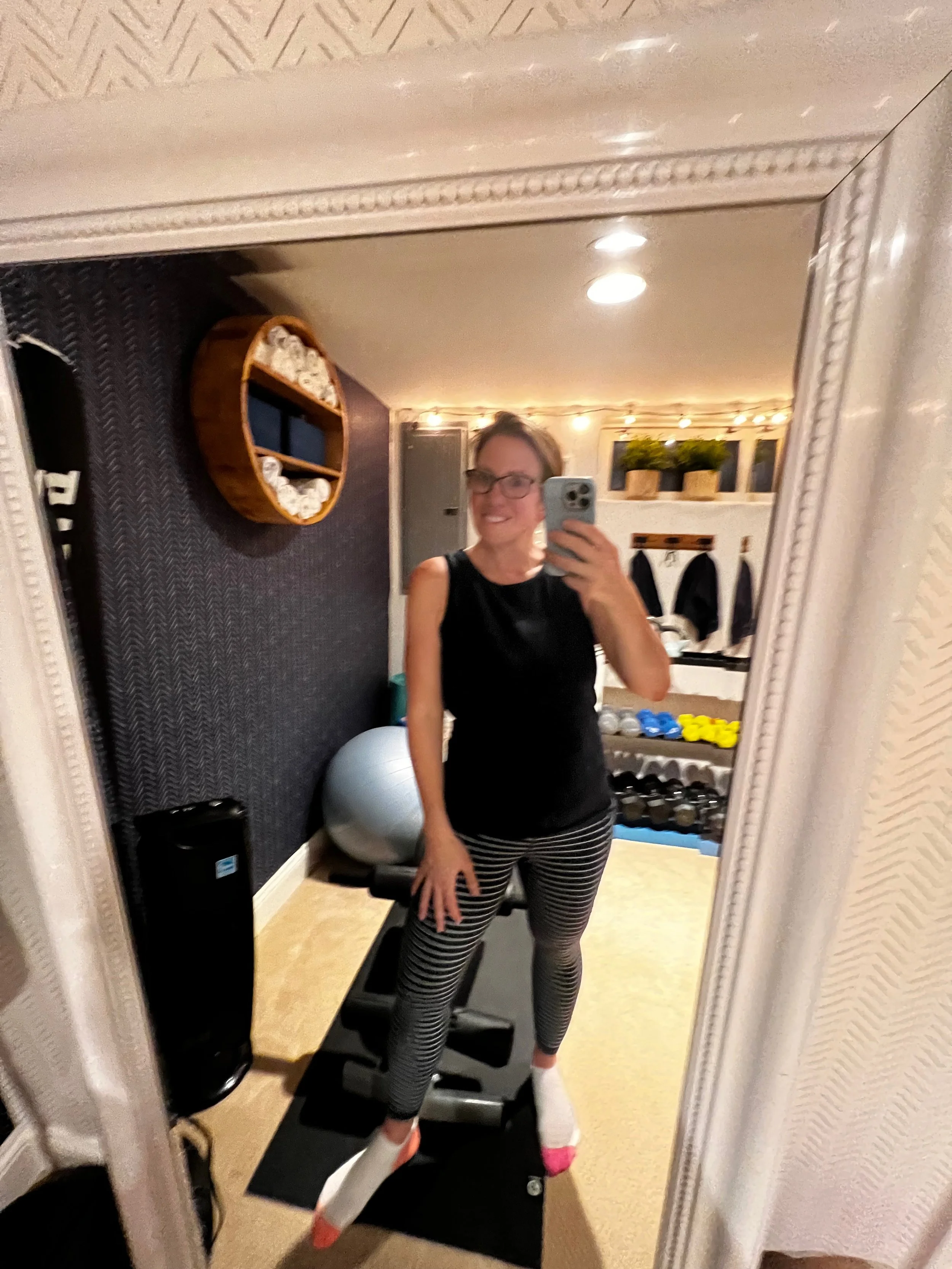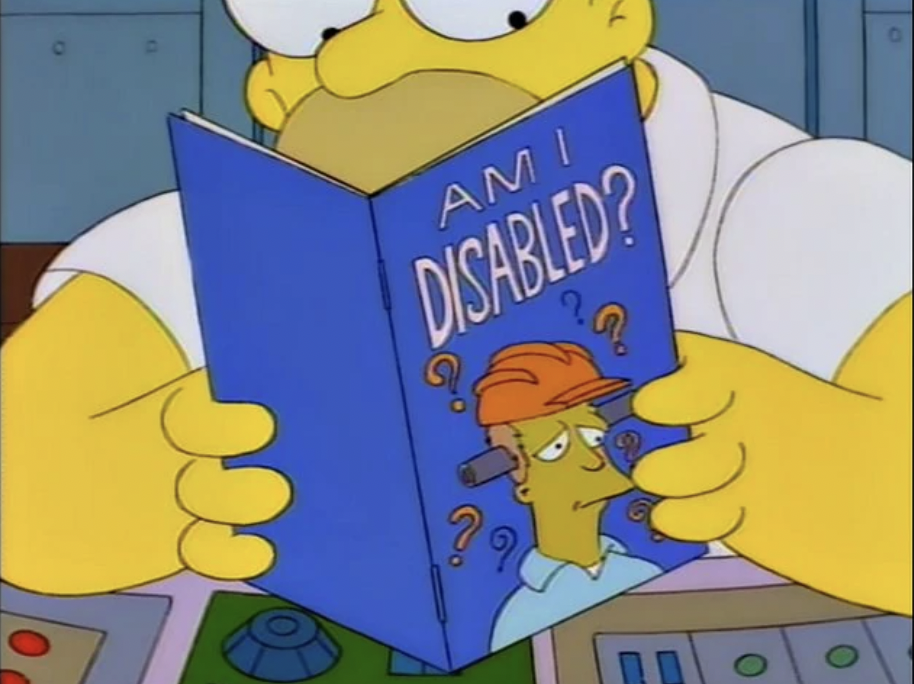Becoming Disabled
I have been writing and rewriting this post for a long time. I am fearful I won’t get this one right because there are so many nuances involved in a discussion about disability. I am, admittedly, brand new to this community of incredibles. So, while this is my story of evolution and acceptance of that term and my prognosis, and I want to share it - especially on this International Day of Persons with Disabilities - let me preface this post by saying, what I do get wrong in either fact or sentiment, I more than make up for in intention. I am here to listen and learn and I hope you, especially my friends with no experience in the disability space, will join me.
Here goes…
A year ago this week, I was diagnosed with Young Onset Parkinson’s Disease. At that moment, I became one of the more than 42 million Americans living with a disability. That fact was, at first, very hard for me to accept. If I'm being totally honest with you, and with myself, becoming disabled was one of my greatest fears in life. I know that may induce a fair amount of cringe on your part - rightfully so. I hope you’ll keep reading.
It was two days before Thanksgiving 2022 that my husband and I heard the words “you have Parkinson's” from a movement disorder neurologist in Washington, DC. Despite having symptoms for more than two years, the actual diagnosis came as a gut punch to us both. We walked out of the office in shock; instantly grieving the active future we thought we’d have.
There were some very dark days immediately post diagnosis full of emo movies and a lot of quiet sobbing. But I didn’t allow the hazy stupor of sadness to linger long. My Gen X, women must have it all, Lean In, defiant to a fault, feisty third child mindset kicked in and I decided, with outrageous and unfounded confidence, that I was going to beat Parkinson’s Disease.
Me during one of my many, many workout sessions this year
And for the majority of this past year, I have done everything in my power to do that. I work out constantly because I read that high intensity interval training might delay progression. I radically changed my diet and cut all caffeine including my beloved morning coffee. I gave up most processed foods and swore off sugar (not really as successful at that one I must confess). Because of this, I have lost more than 60 pounds and am in better shape than I have ever been as an adult.
I complete Parkinson’s physical therapy exercises almost every day, along with a round of stretching to ensure the hallmark rigidity of this disease is kept at bay. And despite being terrible at it, I aim to sleep eight hours each night. I even had a short-lived love affair with meditation.
Instead of taking a step back from work, I doubled down, producing more events for my clients than the year before. We traveled, I wrote, I created a growing online community and I engaged, at the highest level, multiple major Parkinson’s nonprofits to figure out how I could help do my part to find a cure.
I am woman, hear me roar!!!
I think you probably know where this is headed, but I’ll say it anyway: Despite all of my efforts, my Parkinson’s symptoms, one year later, are ever present and progressing. You can’t tell most days because of the miracle that is science and thanks to all the hard work I just outlined. Rest assured they are there, raging just beneath the surface.Am I stronger? Definitely. In both body and mind. But am I winning? No. I am in an all out, everyday battle against this disease, and I will eventually lose because there is no cure for Parkinson’s.
I currently take a combination of 13 pills a day at regular and rigid intervals. While the Parkinson’s meds effectively hide my tremors, they do not have as much effect on the pain that runs up and down my right side. This makes it hard to drive, workout, sit comfortably, basically…exist. My right arm is unpredictable at best, sometimes my right hand is completely useless. I struggle with swallowing issues, orthostatic hypotension, and nightly insomnia. There are some daily tasks that I now struggle with and I find these ever present reminders of my future state incredibly defeating. They are, to my stubborn soul, weakness personified.
During a heart to heart conversation with my sister about some of the issues I am having, she used the word disabled for the first time. It was in the context of looking for products or services that might help me deal with some of my daily symptoms. I had an immediate and defensive reaction. “Well, I mean…I’m not disabled though,” I blurted out. Gently, she replied, “but you are, Al. And you should embrace it - starting by looking for ways to help make your daily existence easier. It’s not a bad word.”
It was the first time I had talked to anyone about being disabled, and a million thoughts ran through my head.
Was I actually disabled? Did I even qualify? Growing up, I had a very narrow vision of what someone with a disability looked like and at present, I don't fit that bill. So I searched the words “Am I Disabled” and got 100 images of Homer Simpson looking up the same thing. LOL Ok…so instead I went to the source and looked up the definition and The Americans with Disabilities Act (ADA) defines a disability as “a physical or mental impairment that substantially limits one or more major life activities.” Parkinson’s is definitely on the list of diseases that render one disabled.
I mean…what can you say about this image?
Ok, so yes. I technically fit the bill. But with my symptoms generally under control, would people look at me and say “she’s not disabled”? Are you thinking that very thing if you’ve seen my Instagram feed? Is there such a thing as disability imposter syndrome? (yes..there is). Or was there a waiting period for someone like me, with Young Onset Parkinson’s, to be seen as disabled “enough” or accepted as such?
Am I in disability purgatory?
As one does, I turned to the internet for answers on all of these questions and more. What I have found is a community that looks nothing like the image of what a disabled person used to mean to me. Yes, some have physical disabilities that are more recognizable but many, many others have invisible disabilities. And some exist between these binary options. It is a creative, beautiful, strong and thriving community - one that deserves respect, visibility and support but not pity. The more I read, the more I craved learning about the fascinating and authentic stories of resilience and survival. It turns out disability is everywhere and the fact that I initially bristled at the word makes me feel ashamed. Suddenly, instead of being afraid of being called disabled, I was afraid that I wouldn’t be cool enough to be part of this community.
But let’s be honest, spending one year with what I will call moderate physical challenges and neurological deficits does not make me a disability expert and I tread very lightly in the space where people have been and worked and struggled for years. Reading posts on Instagram or articles online, does not necessarily convey the incredible daily challenges - both physical and emotional but also economic - that people with disabilities and their care partners endure. Nor does one blog post make me an advocate. There is work to be done here, by me and by the people around me who I hope will learn and grow alongside me on this journey. I will continue to dig in and hopefully earn the title of disability advocate and ally. I will listen and absorb and use my tiny corner of the internet to draw attention to things I casually and perhaps even cruelly missed before it affected me.
And so today, on #IDPWD, I am no longer afraid to say I too am disabled. I am ready to do my small part to challenge the stereotype of what people think of when they hear that word. It is not a bad word. I just hope, someday, I can live up to the example that has been set by so many people before me, to become the very best version of myself despite Parkinson’s. Or maybe even because of it.

